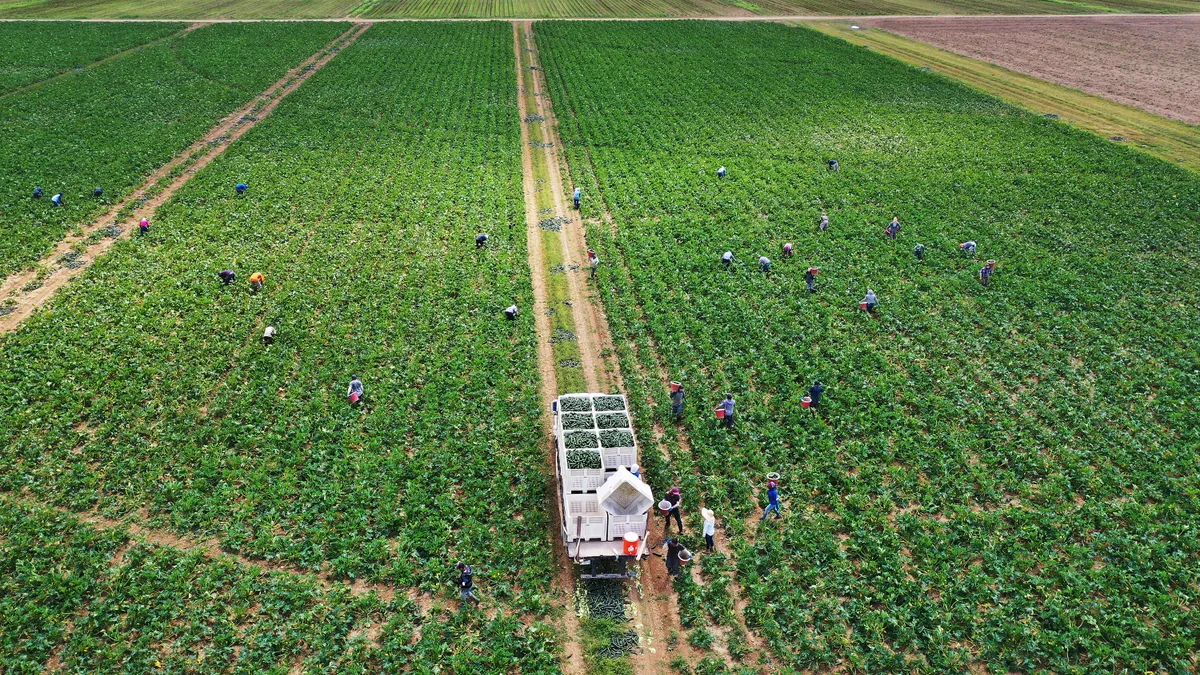Dive Brief:
- The U.S. Department of Agriculture on Tuesday announced more than $2 billion for specialty crop growers to expand markets and respond to natural disasters through increased access to storage facilities.
- The funding creates two new programs for vegetable, fruit and tree nut farmers across the country. The Marketing Assistance Program for Specialty Crops initiative will provide $2 billion to defray costs of entering new markets for farmers who often have to pay more to transport delicate and perishable crops.
- The USDA is also creating a new Commodity Storage Assistance Program, offering $140 million for farmers to access commercial storage facilities in the wake of natural disasters. The program is largely aimed at farmers who saw their operations devastated following Hurricanes Debbie, Helene and Milton.
Dive Insight:
Specialty crop growers are hoping for big funding increases in the upcoming farm bill to enhance competitiveness, respond to disease threats and expand research initiatives. But with farm bill progress stalled, the USDA has looked to make up some of those gaps through new trade initiatives and funding programs.
USDA Secretary Tom Vilsack said its newest programs are urgently needed in the wake of devastating hurricanes that wreaked havoc on citrus, blueberry and pecan farms across the Southeast.
“From providing high-quality, nutritious, American-grown fruits, vegetables, and nuts to our nation and the world, to serving as economic pillars of their communities, specialty crop producers play a critical role in the success of U.S. agriculture,” Vilsack said in a statement.
Applications for both new programs are expected to open in December. To access the Commodity Storage Assistance Program, producers will need to show that natural disasters caused a loss in commercial storage or marketing.
Groups representing specialty crop growers welcomed the announcement, but said the additional funding underscores a need for long-term investments through a new farm bill. The Specialty Crop Farm Bill Alliance, made up of dozens of specialty crop groups around the United States, called the programs "a step in the right direction" to address high labor and input costs, in addition to increased competition from cheaper imports.
While the funding will help "growers recover from some of this economic battering," a new farm bill is needed to help expand the sector.
"The status quo is not sustainable, and the comparatively modest investments we've requested for the farm bill would be transformational to the specialty crop industry,” the alliance said in a statement.











